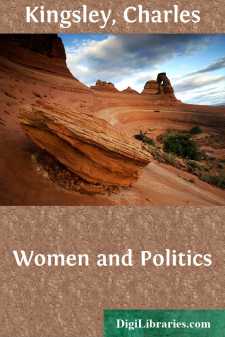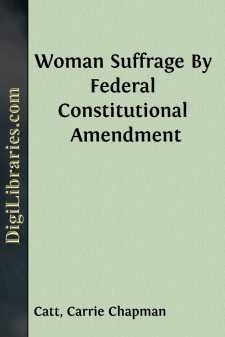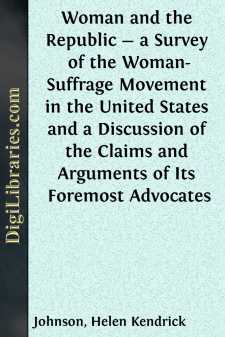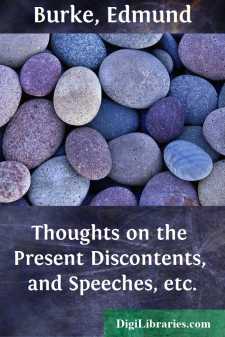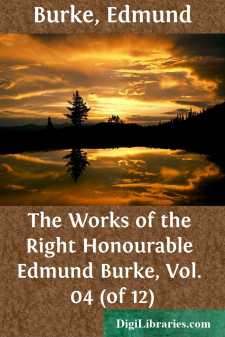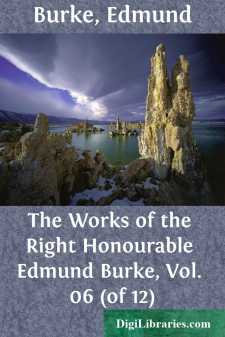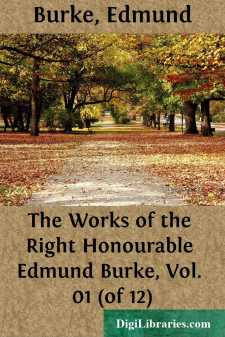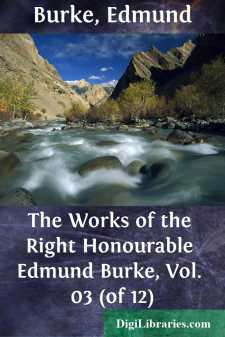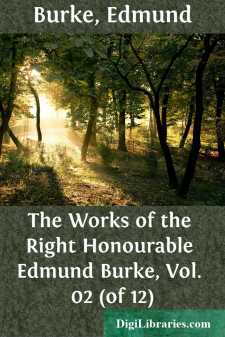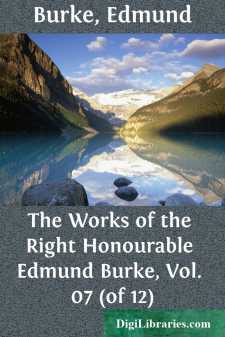Political Science
- Conspiracy & Scandal Investigations 1
- Constitutions 7
- Economic Conditions 10
- General
- Government 6
- History & Theory 132
- Peace 1
General Books
Sort by:
by:
Charles Kingsley
WOMEN AND POLITICS. Somewhat more than 300 years ago, John Knox, who did more than any man to mould the thoughts of his nation—and indeed of our English Puritans likewise—was writing a little book on the ‘Regiment of Women,’ in which he proved woman, on account of her natural inferiority to man, unfit to rule. And but the other day, Mr. John Stuart Mill, who has done more than any man to mould...
more...
CHAPTER I WHY THE FEDERAL AMENDMENT? Woman Suffrage is coming—no intelligent person in the United States or in the world will deny that fact. The most an intelligent opponent expects to accomplish is to postpone its establishment as long as possible. When it will come and how it will come are still open questions. Woman Suffrage by Federal Amendment is supported by seven main reasons. These main...
more...
CHAPTER I. INTRODUCTORY. The introduction to the "History of Woman Suffrage," published in 1881-85, edited by Elizabeth Cady Stanton, Susan B. Anthony and Matilda Joslyn Gage, contains the following statement: "It is often asserted that, as woman has always been man's slave, subject, inferior, dependent, under all forms of government and religion, slavery must be her normal condition;...
more...
by:
Edmund Burke
INTRODUCTION Edmund Burke was born at Dublin on the first of January, 1730. His father was an attorney, who had fifteen children, of whom all but four died in their youth. Edmund, the second son, being of delicate health in his childhood, was taught at home and at his grandfather’s house in the country before he was sent with his two brothers Garrett and Richard to a school at Ballitore, under...
more...
by:
Edmund Burke
A LETTER TO A MEMBER OF THE NATIONAL ASSEMBLY, IN ANSWER TO SOME OBJECTIONS TO HIS BOOK ON FRENCH AFFAIRS. 1791. Sir,—I had the honor to receive your letter of the 17th of November last, in which, with some exceptions, you are pleased to consider favorably the letter I have written on the affairs of France. I shall ever accept any mark of approbation attended with instruction with more pleasure than...
more...
by:
Edmund Burke
FOURTH LETTER ON THE PROPOSALS FOR PEACE WITH THE REGICIDE DIRECTORY OF FRANCE. ADDRESSED TO THE EARL FITZWILLIAM. 1795-7. Letter from the Right Honorable the Lord Auckland to the Lord Bishop of Rochester. EDEN FARM, KENT, July 18th, 1812. My dear Lord,—Mr. Burke's fourth letter to Lord Fitzwilliam is personally interesting to me: I have perused it with a respectful attention. When I...
more...
by:
Edmund Burke
A LETTER TO LORD ****. Shall I venture to say, my lord, that in our late conversation, you were inclined to the party which you adopted rather by the feelings of your good nature, than by the conviction of your judgment? We laid open the foundations of society; and you feared that the curiosity of this search might endanger the ruin of the whole fabric. You would readily have allowed my principle, but...
more...
by:
Edmund Burke
SPEECH. The times we live in, Mr. Speaker, have been distinguished by extraordinary events. Habituated, however, as we are, to uncommon combinations of men and of affairs, I believe nobody recollects anything more surprising than the spectacle of this day. The right honorable gentleman whose conduct is now in question formerly stood forth in this House, the prosecutor of the worthy baronet who spoke...
more...
by:
Edmund Burke
PREFACE. The following speech has been much the subject of conversation, and the desire of having it printed was last summer very general. The means of gratifying the public curiosity were obligingly furnished from the notes of some gentlemen, members of the last Parliament. This piece has been for some months ready for the press. But a delicacy, possibly over-scrupulous, has delayed the publication to...
more...
by:
Edmund Burke
SPEECH ON THE ACTS OF UNIFORMITY FEBRUARY 6, 1772. The following Speech was occasioned by a petition to the House of Commons from certain clergymen of the Church of England, and certain of the two professions of Civil Law and Physic, and others, praying to be relieved from subscription to the Thirty-Nine Articles, as required by the Acts of Uniformity. The persona associated for this purpose were...
more...


